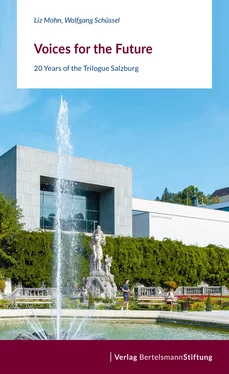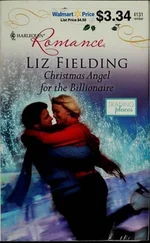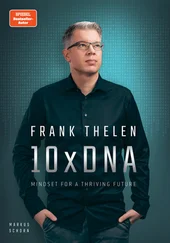The issues we have addressed in the Trilogue’s 20-year history have never served to address the past, but have always looked to the future, true to Albert Einstein’s motto, “I’m more interested in the future than in the past, because the future is where I intend to live.” The scope of the discussions has been wide, depending on what the future seemed to be promising at any given point in time and what merited a closer look. Topics have ranged from the search for identity to the question of how high-quality, sustainable economic development can be achieved and competitiveness maintained, to the various facets of globalization, Asia’s rise, successful neighborhood policy, and the difference between perception and reality.
The Trilogue Salzburg was never meant to be an art-for-art’s-sake event. The intention has always been to serve as a generator of ideas and impetus – for business and politics in Germany and Austria, but above all in Europe. The city of Salzburg was never located on a silk road, but a salt road that provided prosperity early on. Undoubtedly the city’s most famous artist, Wolfgang Amadeus Mozart, was born there and contributed to Salzburg’s becoming a cultural center. Hardly any location in the heart of Europe is better suited for contemplation and entertaining new trains of thought. This vibrant heart – Central Europe, in fact – offers enormous potential and also serves as a bridge to the East and Far East. The Trilogue has reflected this as well.
A range of perspectives can be found at the Trilogue, not only because of the different professions present; regional differences also offer new vantage points. The contrast in the way Europe is seen internally and externally is particularly great: The image of decay, of disintegration is often conveyed – the EU as a sick man, as a sinking ship or estranged family, home to blockades, intrigues, petty fights. Naturally, no one can deny that problems and disputes exist. Yet the opposite is also true: The EU sets standards that are considered exemplary from the US to China. The EU assists and supports, creates security and stability through peace missions and responsibly allocated development aid. Since the fall of the Berlin Wall in 1989, € 400 billion has been disbursed to the EU’s new member states – a huge expression of solidarity and many times more than the US made available through its Marshall Plan after the Second World War. A gentle giant, the EU makes our planet more livable, sustainable, open and secure – even if it is not always aware of its considerable power.
In his essay After Europe , Bulgarian political scientist and Trilogue participant Ivan Krastev analyzes how democracy and globalization have changed: “What was until recently a competition between two distinctive forms of government – democracy and authoritarianism – has evolved in the wake of the global financial crisis into a competition between two different forms of the statement: ‘There is no alternative politics.’” Krastev criticizes that even in democracies, policy decisions are increasingly presented as having no alternative – which, after all, contradicts the very nature of democracy. The Trilogue has always been a search for possible alternatives, for best practices, for new pathways – as the quintessence of every democracy, as nourishment for free, independent citizens.
Apropos freedom: It has undoubtedly suffered the most during the Covid-19 pandemic. Not only because of the clear restrictions on movement, the social distancing and lockdowns. The state’s paternalism is evident far beyond its pandemic-management efforts. No European politician is promoting the EU these days as a force of openness, one that transcends borders even on the continent itself, or advocates in the wider world for liberalization, free trade and political progress. All of Europe is bunkering down and putting up barriers. The EU now seems to be, first and foremost, a defense mechanism and bulwark – against Chinese corporate acquisitions and American digital enterprises, against illegal migrants and against the threat of dumping from post-Brexit Britain. A Europe that curls itself up like a hedgehog and spreads it spines is not our idea of Europe. Anyone who fears freedom should consider the words of former US President Thomas Jefferson: “Timid men prefer the calm of despotism to the tempestuous sea of liberty.”
Jean Monnet once said he would, in a second attempt, give the European project a cultural foundation. That is an interesting and at the same time disquieting thought. It is precisely its diversity that makes our European way of life unique. That is even truer for the global community. Perhaps cultural exchange, translation, communication, contact, jointly organized festivals – without hegemony or a mania for centralization – would allow peaceful coexistence to flourish among the world’s peoples. That was ultimately what Monnet was pursuing with the European idea: “We are not uniting states, we are bringing people closer together.”
If, in the 20 years that the Trilogue Salzburg has been taking place, it has succeeded in bringing at least a few people closer together and igniting some new ideas, then they can be seen as wonderful injections of courage for the future – whatever it might bring.
Courage in an Age Lacking Courage: An Appeal
Helga Rabl-Stadler President of the Salzburg Festival
“Our Salzburg Festival House is meant to be a symbol. It is not the founding of a theater, not a project called to life by a few starry-eyed fantasists, and not the undertaking of a provincial town. It is a matter of European culture. And of eminent political, economic and social importance.” Those were the self-assured, urgent and unmistakable words used by poet and Salzburg Festival founder, Hugo von Hofmannsthal, as he described the task Salzburg faced 100 years ago.
And in his 1917 memorandum, composed in the midst of “the ravages of this war,” von Hofmannsthal’s congenial partner, director Max Reinhardt, wrote of the “terrible reality of our days,” of the “conflagration enveloping the world” that the Salzburg Festival could and should repudiate. Founding a festival was meant to be “one of the first works of peace.” The festival owes its existence to this firm belief in the power of art and in Salzburg as a seat of power.
It seems entirely logical to me that the Trilogue was founded at the beginning of the new millennium in the “heart of the heart of Europe” (as Hofmannsthal defined my hometown). Above all, I would like to thank Liz Mohn in particular for mobilizing all of the Bertelsmann Stiftung’s intellectual and organizational resources, and for continuing to make them available. I would like to thank Wolfgang Schüssel that the decision was made in favor of Salzburg. After all, this city is ideal for thinking about the world, for thinking anew and thinking ahead.
What Reinhardt postulated about the festival applies here, too, to some extent. He was convinced that the exceptional could only be achieved “at a remove from the everyday bustle of city life” and “far from the distractions of the metropolis.” The gatherings at the Trilogue, which usually give rise to inspiring exchanges after just a few hours, show that he was right. And the evening visits to the festival have always been more than mere entertainment – if I may say so.
“Art is a language that uncovers the hidden, tears open the sealed, makes tangible what is innermost, one that warns, excites, unsettles, gladdens.” That is what the great Austrian conductor Nikolaus Harnoncourt passionately proclaimed to the audience during his remarks as the Salzburg Festival celebrated its 75th anniversary. “A work of art that wants to inspire, to move, needs qualified rejection as much as it needs approval” and “the great artworks are masterpieces because they always have something to say to people – even if every generation sees something different.” The title of his remarks was “What Is Truth? or Zeitgeist and Trends.”
Читать дальше












